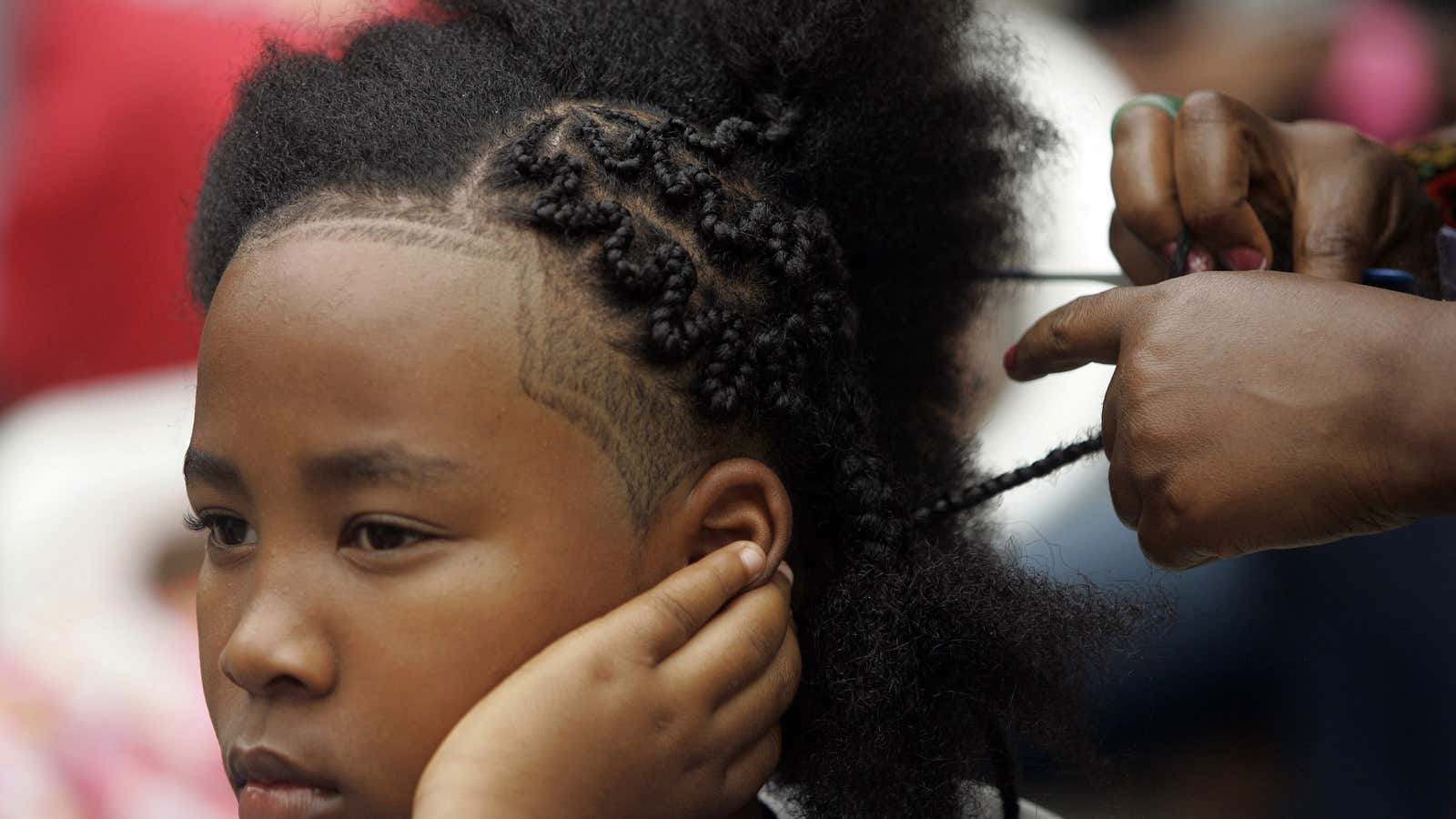Black South African girls as young as 13 have resorted to public protests for the right to wear their natural hair at a prestigious, formerly whites only school. The image of a schoolgirl sporting an Afro and standing up to a white man went viral on Monday (Aug. 29).
Soon an online petition was launched asking South Africans to support the girls by demanding the school review what critics say are racist school policies. When education authorities met with students, parents and teachers, some of the girls cried as they recalled their experiences.
“I have a natural Afro, but a teacher told me I need to comb my hair because it looks like a birds nest,” one girl told the provincial head of education. Another said her mother forced her to cut her hair because she “didn’t want trouble” at the affluent school.
The students also said they were discouraged from speaking African languages. Some said they were compared to monkeys or told they were too concerned with race and politics to achieve the academic excellence the school demands. Some said they were told they belonged in schools in black townships, which are still poorly funded and on the outskirts of the city.
Pretoria High School for Girls has not yet commented, but the school’s code of conduct (pdf) dictates that cornrows, dreadlocks and braids may not be more than 10mm in diameter (just about a third of an inch). The code of conduct does not mention Afros or hair texture, but the girls say the rule that “all styles should be conservative, neat and in keeping with school uniform,” has been used to oppress black students.
A final year student at the school penned an essay for The Daily Vox, a youth-oriented news site, describing some of the incidents girls at the school have experienced. In one, black girls speaking their mother tongue were told to “stop making those funny noises,” and in another incident students were forced to comb their hair before being allowed to eat dinner.
“Our schools undervalue blackness and focus more on containing us than nourishing us,” wrote Malaika Eyoh. “Racially charged incidents between students and staff members are commonplace, as are sweeping these issues under the rug.”
This post has been corrected to show that girls as young as 13 took part in the protests. It previously stated girls as young 14.
